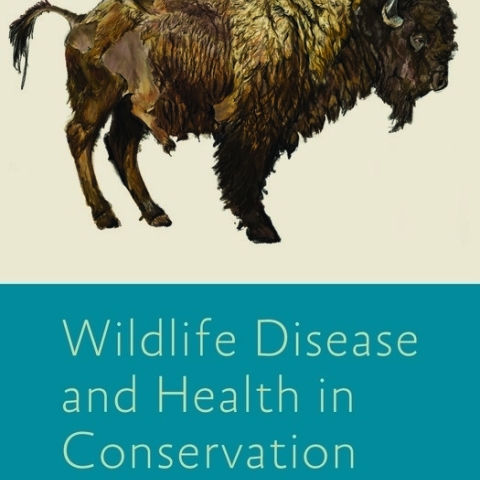Past Events: 2024
Full listing
The Cornell Equine Hospital and Cornell Cooperative Extension are proud to host the Equine Seminar Series. These monthly virtual talks are presented by equine experts on important equine health and management topics.
"Emergency Problems of Donkeys" Presented by Erin Goodrich, DVM DACVPM, Animal Health Diagnostic Center
This seminar will focus on important characteristics of donkeys that are necessary for owners and veterinarians to be familiar with so that they can recognize and manage emergency situations. It will review unique aspects of donkey behavior and important information...
CVBE Spark Talk with Dr. Karan Girotra, co-founder of Cornell Tech and Charles H. Dyson Family Professor of Management chair
Title: "Illuminating the Microenvironments That Shape the Immune Response"
By: Dr. Michael Gerner, University of Washington
Cornell Center for Antimicrobial Resistance Research & Education Fall Seminar Series 2024
“The intersection of nutrition and infection at the host-pathogen interface”
Cells require nutrient metal to carry out essential biochemical processes. This requirement is something that the immune system has exploited to defend against infection by restricting microbial access to metal. This process of nutrient restriction during infection is called “nutritional immunity”. Bacterial pathogens evolved elaborate mechanisms to circumvent nutritional immunity and acquire metal during infection. This...
Presented by Dr. Katherine Anderson, Cornell College of Veterinary Medicine, Cornell Duffield Institute for Animal Behavior
Drugs are commonly used in horses for infection, pain, endocrine disorders, and a variety of other conditions. But what about behavioral disorders? In this webinar, Dr. Anderson will delve into considerations for behavioral medications in horses with stereotypies, anxiety, aggression, sleep deprivation, and other conditions. She will discuss when medications might be appropriate, which drugs to consider (and which ones to avoid), and how they work.
Must register here...
Title: "Themes and Variations of Stress-Signaling Alarmones in Bacteria"
By: Dr. Jade Wang, University of Wisconsin-Madison
Cornell Center for Antimicrobial Resistance Research & Education Fall Seminar Series 2024
“How can we find antibiotics with new mechanisms of action?”
The rise in resistance to known antibiotics has made developing new approaches to combatting bacterial pathogens increasingly urgent. I will discuss work from my lab that aims to address this unmet need by bringing quantitative and biophysical perspectives to the problem. For example, we have combined machine learning and morphometric studies to design screens for antibiotics with novel mechanisms of action. Meanwhile, novel methods for single...
Title: "Understanding and Preventing Early Life Infections: Challenges in CMV and HSV Infection"
By: Dr. Margaret Ackerman, Dartmouth
Most existing and emerging infectious diseases have their origin in animal populations. In the wake of the COVID-19 pandemic the need to understand the cause and impacts of wildlife diseases, as well as how to manage them, has only become increasingly salient.
Join us for a live, hybrid Chats in the Stacks book talk with Robin Radcliffe, associate professor of practice in Wildlife and Conservation Medicine in the Veterinary School, and David Jessup, former senior wildlife veterinarian of the California Department of Fish and Game and former executive manager of the Wildlife Disease...
The Fulbright U.S. Student Program provides full funding for graduate and professional students conducting research in any field or teaching in more than 150 countries. Open to U.S. citizens only. The Fulbright-Hays Doctoral Dissertation Research Abroad program supports doctoral students conducting research in modern languages or area studies for six to 12 months.
Open to U.S. citizens and permanent residents of the United States. Travel to Western European countries is not eligible.
Register for the virtual session.
Can’t attend? Contact fulbright@einaudi.cornell.edu.
Dr. Sylvia Lee, a professor in the department of Molecular Biology and Genetics at Cornell University, will be speaking as part of the Local Heroes subseries of the CoRe Seminar Series on October 23 with her talk, "Gametogenesis mutants reveal molecular links between germ cell differentiation, metabolism, and longevity in C. elegans." Refreshments will be served.
Title: "Bats as Reservoir Hosts of Emerging Pandemic-Potential Pathogens"
By: Dr. Raina Plowright, Cornell University
Cornell Center for Antimicrobial Resistance Research & Education Fall Seminar Series 2024
“Molecular mechanisms underlying biofilm formation in non-tuberculous mycobacteria”
Infections caused by non-tuberculous mycobacteria (NTM) are on the rise across the globe. In the clinic, NTM infections have become increasingly problematic as they are the primary cause of pulmonary lung infections and are difficult to clear due to biofilm formation. Biofilms occur when bacteria colonize surfaces and aggregate in a self-secreted exopolysaccharide matrix. NTM biofilms are a public health threat as they...
Become a Cornell Public Health professional! Find out how to promote health and wellbeing, advance health equity and sustainability and LEAD CHANGE! Join us and learn more about our MPH Program and new concentrations. We look forward to speaking with at our virtual info session.
Register here
Title: "Applying Bacterial Genetics to Understand, Treat, and Prevent Tuberculosis"
By: Dr. Sabine Ehrt, Weill Cornell Medical College
Dr. Jongmin Kim, Assistant Professor in the Biomedical Sciences department at Cornell University, will be speaking as part of the CoRe Seminar Series with his talk, "Gene silencing mechanisms safeguarding germ cell fate" on October 23 at 4:00 PM. This is a hybrid event. Refreshments will be served.
Title: "What's Self Got to do With It? Thymic Imprinting of T Cell Effector Function"
By: Dr. Heather Melichar, McGill University
Cornell Center for Antimicrobial Resistance Research & Education Fall Seminar Series 2024
“Surveying the roles of tRNA modification in bacterial pathogenesis”
Adaptation to an antimicrobial environment is critical for the infection of pathogenic bacteria. We focus on the chemical modification of tRNA (tRNA modification) as a potential mechanism underlying bacteria’s adaptation to hostile antimicrobial environments. This seminar will introduce our exploration of tRNA modifications in bacterial pathogens and discuss their roles in environmental adaptation.
Satoshi Kimura Bio:
Dr. Kimura...





















